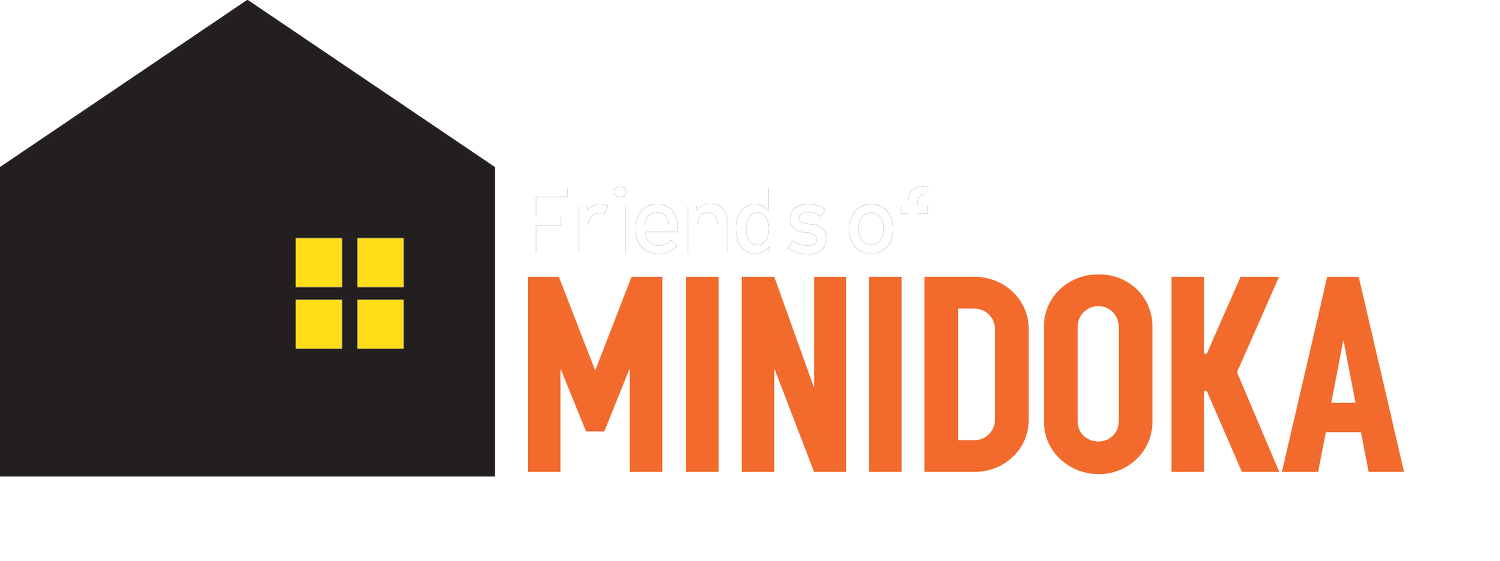Love for Your Libraries – A Call to Fight Censorship
By Erin Kennedy, Librarian and Idaho Library Association’s Intellectual Freedom Chair
In early October I found myself at a bookstore event sitting next to Maggie Tokuda-Hall, an award-winning children’s book author. It’s no stretch to say I felt a bit overwhelmed. I’m a librarian, and in my world, authors are celebrities. This author, in particular, had me starry eyed. Not only had she written a book that takes place in my home state of Idaho, but she had also fought a public battle against censorship.
Tokuda-Hall’s Love in the Library is the poignant tale of her grandparents, Tama and George, who met and fell in love while incarcerated at the Minidoka Concentration Camp. Although Tokuda-Hall’s book is written for children, it includes an author’s statement explaining the incarceration for what it was–an example of systemic racism in which 120,000 people were deprived of their freedom simply for having Japanese ancestry. Publishing giant Scholastic offered to license her book for use in schools nationwide, but only if she removed all references to racism in her statement. Tokuda-Hall refused.
Her stand against Scholastic endeared Tokuda-Hall to librarians everywhere. While censorship is not a new issue, it has become increasingly violent and polarizing. Librarians and teachers are being vilified and harrassed. Book challenges and bans are on the rise. In 2022, the American Library Association reported bids to censor 2,571 books, the most since it began tracking this data more than 20 years ago.
This precipitous rise in censorship is happening in Idaho as well. For two decades, Idaho libraries reported a handful of book challenges per year, if any. In 2021, only three book challenges were reported in the entire state. That number increased to 66 in 2022, and has grown exponentially in 2023.
Why the sudden increase? Book bans have become an organized endeavor, spearheaded by well-funded groups such as Moms for Liberty and MassResistance. What was once one parent’s complaint against a single book has become one individual objecting to dozens, sometimes hundreds, of books they have never seen nor read. In 2022 and 2023, Idaho lawmakers joined the fray and attempted to pass legislation criminalizing librarians and subjecting libraries to expensive litigation.
As with the rest of the nation, censorship in Idaho’s libraries is usually performed in the name of protecting children from “harmful” or “obscene” materials. In fact, it is largely directed toward books by and about people of color or those who identify as LGBTQ+. Why else would Rise Up! How You Can Join the Fight Against White Supremacy or the classic picture book The Story of Ferdinand be pulled from the shelves? Sadly, it’s not just “those books'' people find offensive. It’s “those people.”
Censorship in any form is dangerous, but it is particularly insidious when couched in the intent to protect vulnerable populations such as children. Let me be clear: Idaho’s school and public libraries do not provide minors with obscene materials, which are defined in Idaho code and Supreme Court precedent. Libraries do provide access to a wide range of ideas and information, including those that challenge prevailing beliefs, are unpopular or controversial. What one parent may consider morally unacceptable may be viewed by another as vital for understanding our world. Idaho’s libraries support the rights of parents to decide what books their children read. No parent has the right to decide what is or is not appropriate for another family.
Libraries need your help to stem the tide of censorship. Talk to your legislators and tell them you do not support censorious legislation against libraries. Attend school and library board meetings to express your support for staff who have advanced training in the selection of age-appropriate materials. Write to your local newspaper about the many ways in which libraries serve their communities and help them thrive. Most importantly, vote for school and library board members, local leaders, and state policymakers who will oppose censorship and advocate for every parent’s right to choose what their children–and only their children–read.
Now, as in the past, libraries are spaces where people can safely explore diverse perspectives and educate themselves on a wide range of topics. As Tokuda-Hall’s experience shows, when materials are removed from libraries it becomes easier for society to forget the darker chapters of its history and silence the voices of those who have been oppressed. By censoring such books, we risk perpetuating ignorance, intolerance and a lack of understanding. We risk forgetting our history and our humanity. Our children deserve better.
Side Note: Follow what’s happening in Idaho libraries by following the Idaho Library Association on social media @idaho_libraries or visiting www.idaholibraries.org.
Please consider making a donation of $18.99 to Friends of Minidoka to place a copy of Love in the Library in an elementary school library. FoM’s goal is to give a copy of Love in the Library to at least 85 school libraries in Idaho to start and will expand to other states.


